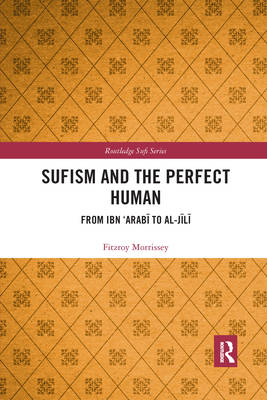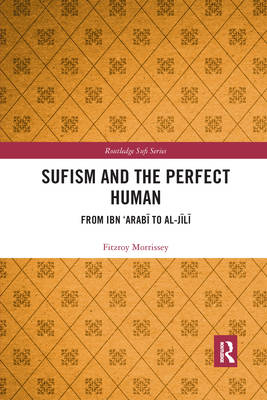
- Afhalen na 1 uur in een winkel met voorraad
- Gratis thuislevering in België vanaf € 30
- Ruim aanbod met 7 miljoen producten
- Afhalen na 1 uur in een winkel met voorraad
- Gratis thuislevering in België vanaf € 30
- Ruim aanbod met 7 miljoen producten
Omschrijving
Studying the history of the notion of the 'Perfect Human' (al-insān al-kāmil), this book investigates a key idea in the history of Sufism. First discussed by Ibn 'Arabī and later treated in greater depth by al-Jīlī, the idea left its mark on later Islamic mystical, metaphysical, and political thought, from North Africa to Southeast Asia, up until modern times.
The research tells the story of the development of that idea from Ibn 'Arabī to al-Jīlī and beyond. It does so through a thematic study, based on close reading of primary sources in Arabic and Persian, of the key elements of the idea, including the idea that the Perfect Human is a locus of divine manifestation (maẓhar), the concept of the 'Pole' (quṭb) and the 'Muhammadan Reality' (al-ḥaqīqah al-Muhammadiyyah), and the identity of the Perfect Human. By setting the work of al-Jīlī against the background of earlier Ibn 'Arabian treatments of the idea, it demonstrates that al-Jīlī took the idea of the Perfect Human in several new directions, with major consequences for how the Prophet Muhammad - the archetypal Perfect Human - was viewed in later Islamic thought.
Introducing readers to the key Sufi idea of the Perfect Human (al-insān al-kāmil), this volume will be of interest to scholars and students interested in Sufism, Islam, religion and philosophy.
Specificaties
Betrokkenen
- Auteur(s):
- Uitgeverij:
Inhoud
- Aantal bladzijden:
- 176
- Taal:
- Engels
- Reeks:
Eigenschappen
- Productcode (EAN):
- 9781032174273
- Verschijningsdatum:
- 30/09/2021
- Uitvoering:
- Paperback
- Formaat:
- Trade paperback (VS)
- Afmetingen:
- 156 mm x 234 mm
- Gewicht:
- 258 g

Alleen bij Standaard Boekhandel
Beoordelingen
We publiceren alleen reviews die voldoen aan de voorwaarden voor reviews. Bekijk onze voorwaarden voor reviews.











